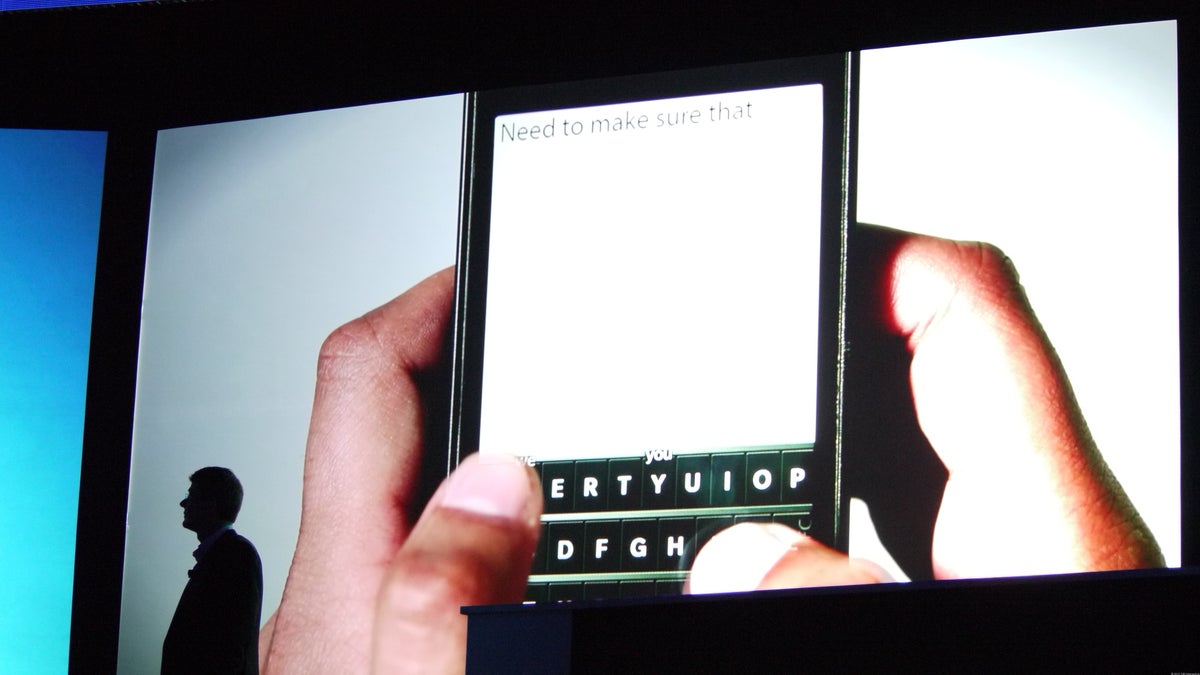Can RIM make the virtual keyboard sexy again?
Research In Motion's decision to drop its trademark physical keyboard for its initial BlackBerry 10 device represents a break from the company's past. Despite how the BlackBerry faithful may react, this could be a good thing.

commentary A BlackBerry without a keyboard? Sacrilege, I suspect many of the faithful will say.
But Research In Motion has bit the bullet and shed its physical keyboard -- arguably the defining trait of its best phones -- and has opted to go virtual with its BlackBerry 10 operating system (at least for the initial phone). And even though I argued as recently as a few months ago that a physical keyboard should remain intact with the next-generation of BlackBerrys, I find myself warming up to the idea.
If BlackBerry 10 is supposed to represent a wholesale change and jump in the BlackBerry experience, then a virtual keyboard provides the best illustration that it is willing to break from the past and shake its legacy mentality. Just as new RIM CEO Thorsten Heins has embraced change and a sense of urgency, the next wave of phones appear as if they will too. It's symbolic that the first BlackBerry 10 product will go sans physical keyboard, going against a long line of flagship phones.
With RIM still facing intense competition from Apple's
But the early word on the virtual keyboard RIM has been showing off at BlackBerry World this week has been positive. My colleagues were left impressed with its responsiveness and accuracy, with fellow senior writer and mobile beat reporter Marguerite Reardon saying that it is better than anything else out in the market.
Such a ringing endorsement could help answer how the new BlackBerrys are supposed to set themselves apart from the iPhone, which has been steadily improving its virtual keyboard over the years, or Android, which has both improved its keyboard, and offers third-party keyboard options.
The virtual keyboard boasts better predictive capabilities, and is supposed to learn how a person types, allowing for better inputs down the line. That may provide a measure of comfort to longtime BlackBerry users reluctant to give up the reassuring click of a physical key.
It still remains to be seen whether the virtual keyboard can outpace physical keys. While BlackBerry users have an fewer things to brag about over the years, they can still boast about their ability to quickly tap out a long e-mail. I've written whole stories on a BlackBerry -- something I'm hesitant to do on an Android device or iPhone.
Heck, even some of RIM's own current ads mock the virtual keyboard, with customer testimonials about how they couldn't live without their physical keyboards.
RIM, meanwhile, doesn't appear to be completely abandoning the keyboard. Heins said he hope to incorporate some of the innovations into physical keyboards, and RIM representatives told PhoneScoop that future devices would incorporate a keyboard.
BlackBerry users, of course, have plenty of other reason to fear all-touch-screen devices from RIM. To say the company has had a mixed history with touch-screen BlackBerrys is generous. Its first such device, the
RIM dropped the terrible click-screen idea and went with standard touch screens for its last wave of BlackBerry 7 phones, but those devices barely made a dent in the market. If someone was buying a BlackBerry, they were going for the flagship
But the point with the new virtual keyboard is that RIM is looking to turn over a new leaf. Unlike previous iterations, which were based off the original BlackBerry operating system, the new keyboard is built off the smarter, faster QNX platform.
If RIM can convince BlackBerry users that its virtual keyboard is worth taking a chance on, perhaps it has a shot at a comeback after all.
Updated at 12:14 p.m. PT: to add RIM's comment that it expects to have future BlackBerrys with keyboards.

